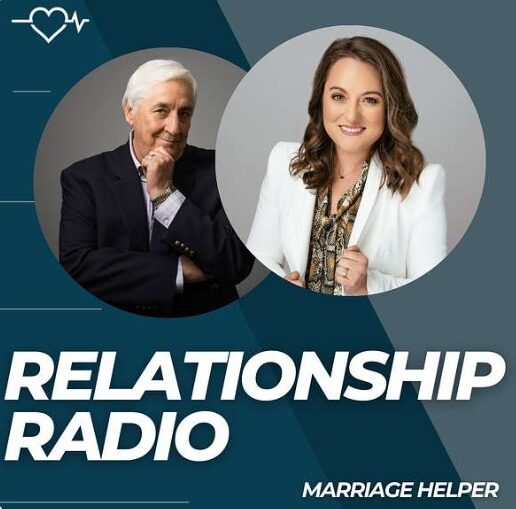
Forgiveness can be difficult to both give and receive. When we’ve been hurt, especially by a loved one, that pain will take time to heal. We might want to forgive them mentally long before we’re able to emotionally. On the other side, you might feel that you’ve done all you can to apologize by showing remorse and trying to atone for your actions. If your spouse hasn’t forgiven you, it can cause frustration to build. That leads us to today’s topic: how do I get my spouse to forgive me?
You Must Be Truly Sorry To Seek Forgiveness
The first and most important key to remember is that you can’t force forgiveness. Accept that your spouse has the right to forgive you or not. And so, if you demand forgiveness, if you demand mercy and grace, that communicates to your spouse that you’re not really sorry about what you did. People who push for forgiveness are almost always demonstrating that they aren’t genuinely remorseful about what they did. Because people who truly are sorry for what they did don’t demand anything; they’re just happy for whatever they have.
If you can’t demand forgiveness, you have to ask for it. Asking for forgiveness must be done clearly, sincerely, and humbly. Don’t try to mix your apology up with other things or try to explain your actions. There will be time later for explanations if they are needed, but, for now, take full responsibility for what you have done without any kind of justification.
Moving Forward After The Apology
A sincere apology is key to getting your spouse to forgive you, but don’t grovel. People tend to repeatedly apologize when they feel sorry about what they’ve done. Seeing your spouse upset or in a bad mood can trigger those feelings of guilt or remorse to resurface and make you want to keep apologizing. But, what happens after a period of time when you keep repeating that kind of thing? You start programming yourself and the other person to think that you’re no good.
If you feel the need to apologize to your spouse multiple times, say you’re sorry in different ways. For example, after you’ve apologized and it comes up again down the line, you can say something like, yes, I regret that happened. I’m glad that we’re not there anymore. If it comes up again, you can say, yes, it was a tough lesson to learn, but I’m really glad I learned it. In other words, you should still indicate remorse without indicating that you’re no good. Continuing to beat yourself up over your mistakes will only program you and your spouse to think you’re no good.
Grieving Is A Process
Forgiveness can take time, and everyone heals at their own pace. But sometimes, you might need help to get through that process entirely. Psychologists call the inability to move forward and forgive someone after an extended amount of time deep grief. But, because of the physical, psychological, and physiological problems it can cause, you can’t live in deep grief.
David and Debbie Matthews define grief as a loss of expectation. For example, I thought my life would be this way, but it’s different. This grief can be from the loss of a person or your expectation of marriage in this situation. You need time to process this grief before you can see the possibility of a new future.
Holding On To Grief Can Cause Negative Emotions
Marriage research shows that people typically wait six years after a problem starts before they get help for it. During that time, negative emotions like anger and resentment can grow, causing more issues for your marriage. However, sometimes it is possible for you to help your spouse through the grieving process.
One way to do this is to let them tell you how they feel and why they are still hurt. Be prepared for your spouse to discuss how you have made them hurt without getting defensive. If you’re able to listen to them, understand them, truly hear them, and empathize with them, you can start helping them through the grieving process so they can begin dealing with the negative emotions.
Spark of Life is run by our friends David and Debbie Matthews. They have retreats and offer other resources for people who are experiencing grief. Their resources have helped countless people who have experienced the loss of the expectation of what their marriage would be. We highly recommend combining resources from Marriage Helper and Spark of Life for those struggling with the grieving process.
Your spouse might not be the only one experiencing grief. You might also be experiencing grief from your loss of expectations for the marriage from your actions. It’s just as important to allow yourself to grieve as it is for your spouse. Completing this process will prevent any negative emotions about yourself from hindering the reconciliation in your marriage.
Become The Best Version Of Yourself
It’s crucial at this point to consistently show your spouse the new you that you’ve become after learning from your mistakes. Understand that no one will do this perfectly, including you. But try your best to be that new person in everything you do.
There are two things to remember when talking about forgiveness. One is that you have to see the other person and yourself as flawed human beings. The second is to try and avoid punishing yourself. Self-punishment is the tendency to want to punish yourself or give yourself consequences for actions you have taken. This only hinders you from mentally being able to overcome the situation. You’re never going to guilt or shame yourself into being a better person. Instead, being surrounded by people who care for you will help you move forward and increase your feelings of self-worth.
We Can Help
At Marriage Helper, we talk about our PIES concept that ties in nicely with self-worth. We have a weekly podcast with Kimberly Beam Holmes called It Starts With Attraction that focuses on helping you become your best individual self. We also have the Your Best Self Collection which focuses on teaching you how to be the best you can be for your age and situation. There are also resources like The Foundations Course that can start your marriage on the path to healing.
So the bottom line is, don’t try and beat yourself into forgiving yourself or feeling better. Instead, give both yourself and your spouse time and space for grieving. And finally, focus on becoming the best version of yourself through working on physical, intellectual, emotional, and spiritual attraction.
WE WANT TO HELP
At Marriage Helper, we’ve walked alongside thousands of couples and spent decades researching what really works to strengthen marriages. Our goal is to provide you with practical, research-backed guidance—like the free information you’ve found on this page—because we genuinely care about helping marriages thrive. If you’re ready to go deeper, our workshops, membership, and one-on-one coaching offer even more tools, insights, and personalized support to help you navigate your unique journey and create lasting change in your relationship.
Our intensive Marriage Helper Workshop has a remarkable 70% success rate in saving marriages, even if your spouse is reluctant or unwilling to participate. And here’s what’s even more encouraging: 99% of participants recommend our program to others, regardless of their ultimate outcome.
Learn more about:




